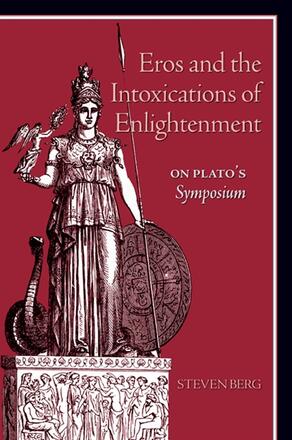
Eros and the Intoxications of Enlightenment
On Plato's Symposium
Alternative formats available from:
Provocative reinterpretation of Plato's Symposium.
Description
An original analysis of one of Plato's most well-known and pivotal dialogues, this study is based upon the effort to think together the most manifest themes of the Symposium (the nature of eros and the relation between poetry and philosophy) with its less obvious but no less essential themes (the character of the city and the nature and limitations of sophistic enlightenment). Author Steven Berg offers an interpretation of this dialogue wherein all the speakers at the banquet—with the exception of Socrates—not only offer their views on the nature of love, but represent Athens and the Athenian enlightenment. Accordingly, Socrates' speech, taken in relation to the speeches that precede it, is shown to articulate the relation between Socrates and the Athenian enlightenment, to expose the limitations of that enlightenment, and therefore finally to bring to light the irresolvable tension between Socrates and his philosophy and the city of Athens even at her most enlightened.
Steven Berg is Associate Professor of Philosophy at Bellarmine University.